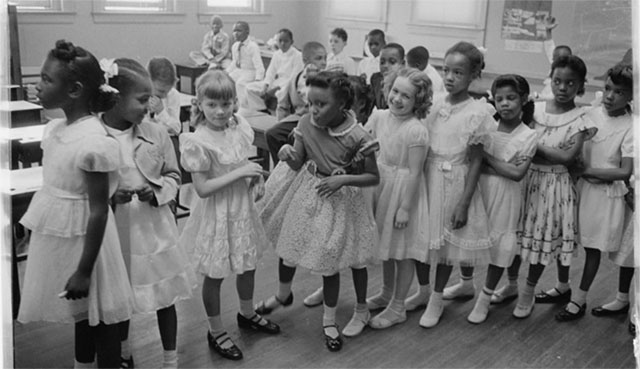The Case of Brown v. Board of Education
“Brown v. Board of Education of Topeka” was a Supreme Court case that ruled segregation based on race in public school systems is unconstitutional. In 1896, racially segregated facilities and schools became legal, as long as departments for black and white people were equal. This is known as the “separate but equal” principle. In 1951, Oliver Brown filed a lawsuit against the Board of Education of Topeka, Kansas after his daughter could not attend Topeka’s all-white elementary school. Brown reasoned that schools for black children were not equal to schools for white children, and segregation did not provide justice. The Court ruled that Brown and his fellow plaintiffs had equality, guaranteed by the 14th Amendment, taken from them. The Brown v. Board decision did not end segregation on its own. But, case ruling was a cornerstone to the civil rights movement, as it helped establish that “separate but equal” education and other services were not equal. The ruling of Brown v. Board paved the path for future events including the “Little Rock Nine” being the first black students to attend an all-white school, and inspired many like Rosa Parks to resist injustices.
